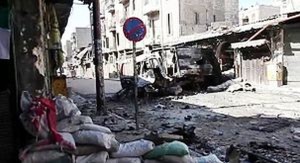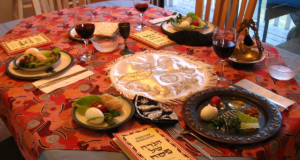“I do feel gratified that this series gave us fans a real show, instead of the blowouts we saw during the Arab Spring Training.”
 Aleppo, November 2 – Followers of the ongoing conflict between the regime of Syrian President Basher Assad and rebels fighting to retain control of areas they took in the last five years are excited to see the drama continue, and expect the series of clashes to extend to the full seven necessary to determine a victor.
Aleppo, November 2 – Followers of the ongoing conflict between the regime of Syrian President Basher Assad and rebels fighting to retain control of areas they took in the last five years are excited to see the drama continue, and expect the series of clashes to extend to the full seven necessary to determine a victor.
Initial gains by the rebels in various parts of the country threatened to defeat the dictator, but the latter managed to recruit free agents from the Russian, Lebanese, and Iranian leagues and stem the losses. More recently, the tide has turned against the rebels, especially in the historic city of Aleppo, who are mounting a last-ditch counteroffensive to reopen a corridor to the city to relieve a months-long siege by Assad’s forces, Hezbollah fighters from Lebanon, and Shiite militia members recruited by Iran from its own soil, Pakistan, and Afghanistan. The series has riveted fans since its dramatic beginnings, when the apparent underdog rebels managed to throw off Assad’s yoke from multiple areas of the country. But home-field advantage eventually became an important factor, and Assad and his allies have steadily leveraged it to reestablish control of the series.
“I’m rooting for the rebels, but it’s good for the sport to have an evenly-matched series that goes the distance,” gushed enthusiast Marshall Law. “So while I’m not happy right now about the way things are going in Aleppo, I do feel gratified that this series gave us fans a real show, instead of the blowouts we saw during the Arab Spring Training.”
Initially, fans grew excited over the many upstart teams challenging the dominant positions of the established players: in Egypt, the perpetual second-place Muslim Brotherhood team scored success against the perennially dominant Mubarak franchise; in Yemen, Libya, and Tunisia, rebels made relatively quick work of their erstwhile Arab League tormentors, and have held first place since then. Only in Egypt have the gains been thoroughly reversed, while in Yemen a new upstart team funded by Iran continues to challenge the team that ousted the Ali regime from its perch in 2011. The success, some of it short-lived, has some enthusiasts boasting that the sport does not necessarily favor the wealthy teams, and no adjustment need be made to help small-market fighters compete against economic powerhouses.
Fans of the disadvantaged teams continue to lament the disparity, however, since ultimate victory has tended to follow the richer competitors, or at least the competitors who hold generous revenue-sharing agreements with wealthy teams or investors not currently fielding a team, such as Qatar. Even those fans nevertheless concede that the current series between Assad and the rebels has defied expectations in more ways than one, and helps guarantee that the industry as a whole will continue to thrive.
Please support our work through Patreon.




